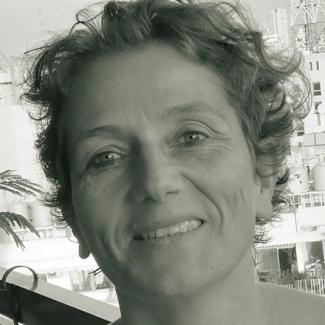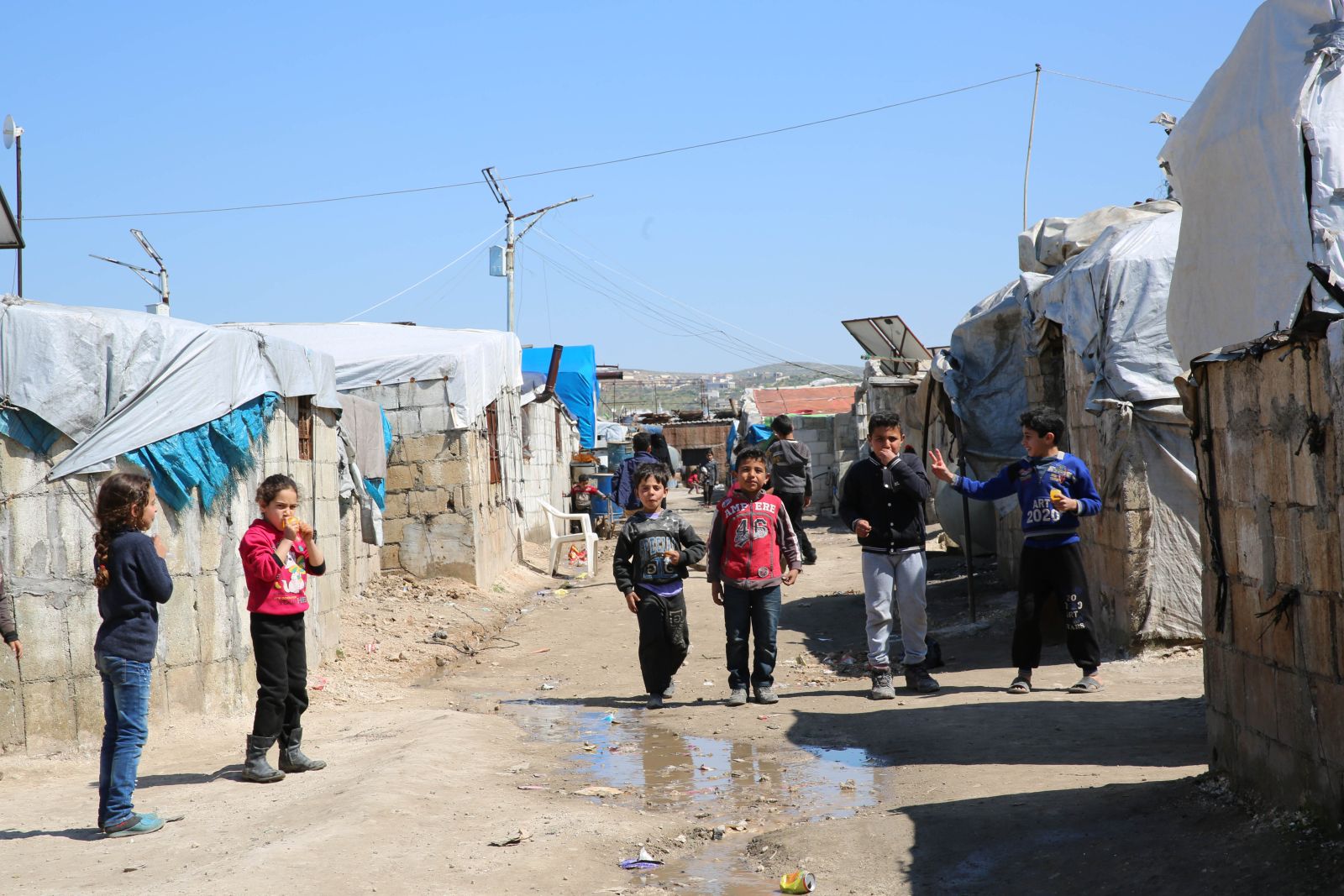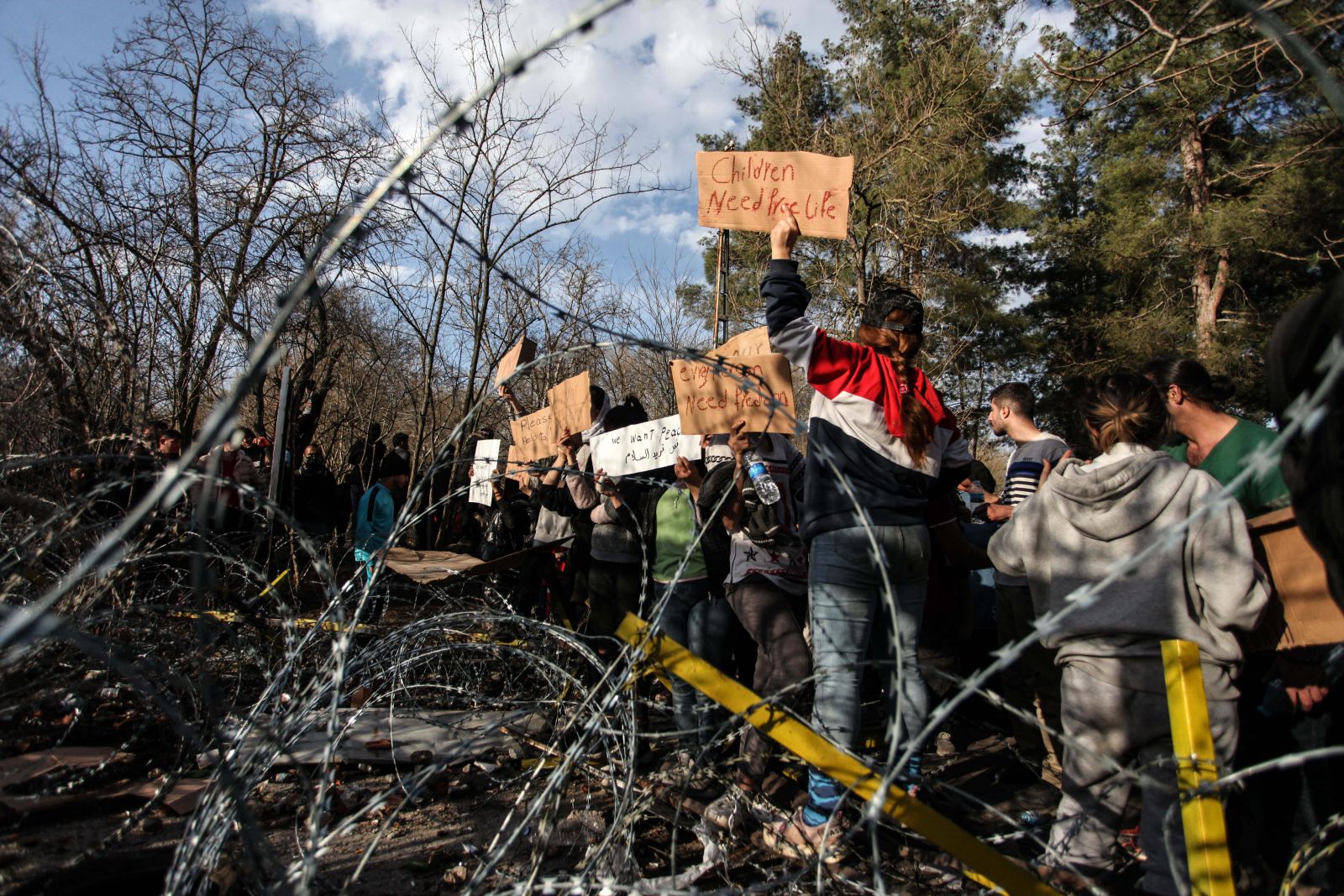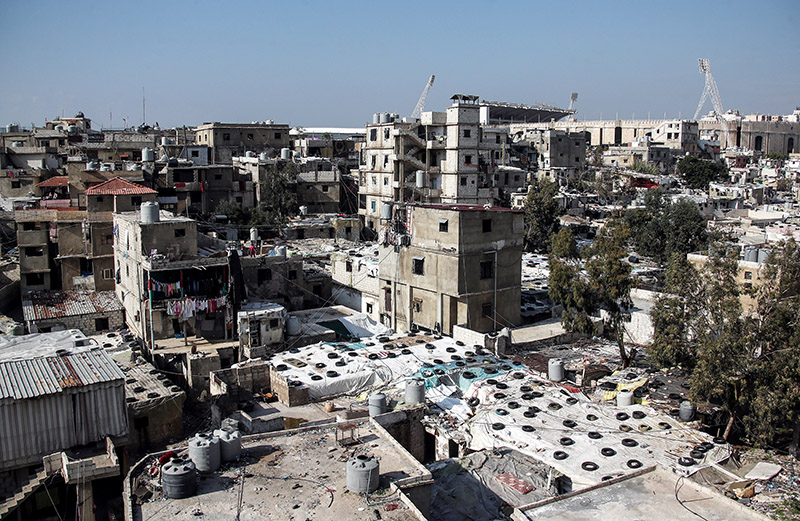Makeshift housing
Informal refugee settlements
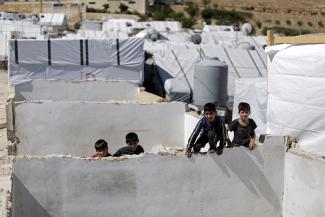
Unlike during the Palestinian refugee crisis 70 years ago, the Lebanese government decided not to rely on camps in which people would centrally be taken care of. One reason was the experience with the Palestinian camps which became permanent settlements. The Lebanese authorities do not want something like that to happen again (see main story).
Syrian refugees are thus now dispersed all over the country and are mostly left to themselves. More than one third of them live in the Beqaa Valley in eastern Lebanon. This is an agrarian region with rather poor infrastructure and a struggling economy. Informal settlements mark the landscape. The makeshift huts are made of plastic tarpaulin and wood, dotting land formerly used as fields. The residents pay rent, though some owners allow them to stay free of charge.
The new settlements are typically located outside villages along main roads or behind the villages. The feeder roads that lead there are generally in poor condition. Many are mere dirt tracks. Most people walk to the main road to take a collective taxi or a minibus if they want to go to a town. As is true in Lebanon in general, there is hardly any public transport in the Beqaa Valley. The train line that linked Damascus to Aleppo in the past was discontinued in the mid-1970s, shortly after the Civil War erupted.
In winter, the condition of the dirt roads deteriorates. Sometimes, they cannot be used at all. In this sense, the refugees living in settlements along the main roads are at an advantage. The downside is they have traffic. There are no sidewalks or bicycle trails, so pedestrians and playing children are at serious risk of accidents. Due to many deadly incidents, the road from the village Bar Elias to Baalbek is now called “the road of death”. It passes by several informal settlements.
